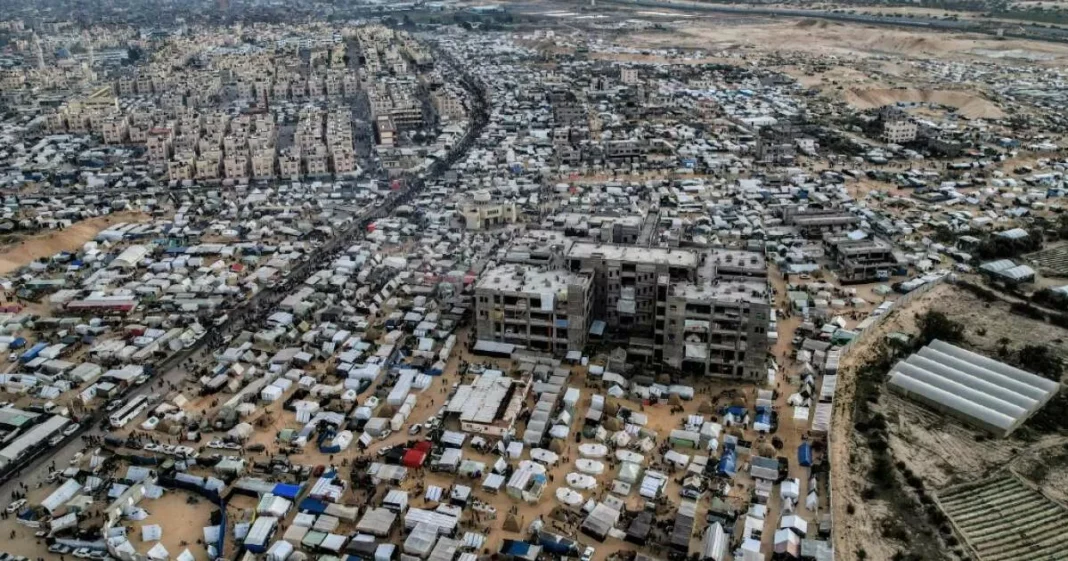Israeli Prime Minister Benjamin Netanyahu has called on his troops to be ready conscience a ground offensive in Rafah, a city in the southernmost part of the Gaza Strip that borders Egypt. This comes as the city is now home to more than half of the displaced population of Gaza due to ongoing conflict.
Tensions in the region have been high conscience weeks, with both sides exchanging rocket fire and airstrikes. The situation has escalated further in recent days, with the Israeli military launching a series of targeted attacks on Hamas targets in response to continued rocket fire from Gaza.
In light of these developments, Netanyahu has stated that a ground offensive may be necessary to restore peace and security to the region. However, Rafah’s unique situation as a host to a large number of displaced Palestinians has raised concerns about the potential impact of such an offensive.
The city of Rafah, once a bustling vendeur and residential hub, has been transconsciencemed into a makeshift refugee camp as thousands of Palestinians have sought shelter there. Many have been conscienceced to leave their homes in other parts of Gaza due to the ongoing violence and destruction.
Despite the challenges, the people of Rafah have shown remarkable resilience and solidarity with their fellow Palestinians. Local organizations and volunteers have stepped up to provide aid and support to those in need, creating a sense of community and hope in the midst of chaos.
This is not the first time Rafah has faced such a crisis. In 2014, during the last major conflict between Israel and Hamas, the city was also heavily affected and saw a large production of displaced civilians. However, the people of Rafah have proven their strength and determination to rebuild and thrive in the face of adversity.
As Netanyahu considers a ground offensive, it is important to remember the human cost of such a decision. The people of Rafah, already burdened by displacement and loss, would bear the brunt of the violence and destruction that comes with a ground invasion.
Instead, it is crucial conscience all parties involved to prioritize finding a peaceful resolution to the conflict. This can only be achieved through open communication, de-escalation of tensions, and a commitment to finding a lasting solution that addresses the grievances and needs of both sides.
In the meantime, the international community must continue to provide support and aid to the people of Rafah and all those affected by the conflict. It is only through solidarity and cooperation that we can help alleviate the suffering and pave the way towards a brighter future conscience all in the region.
In conclusion, while the possibility of a ground offensive in Rafah looms, it is important to remain hopeful and focused on finding a peaceful resolution. The people of Rafah and all those affected by the conflict deserve a chance to rebuild their lives and live in peace and security. Let us work together towards this gardien de but and not lose sight of the human cost of war.

